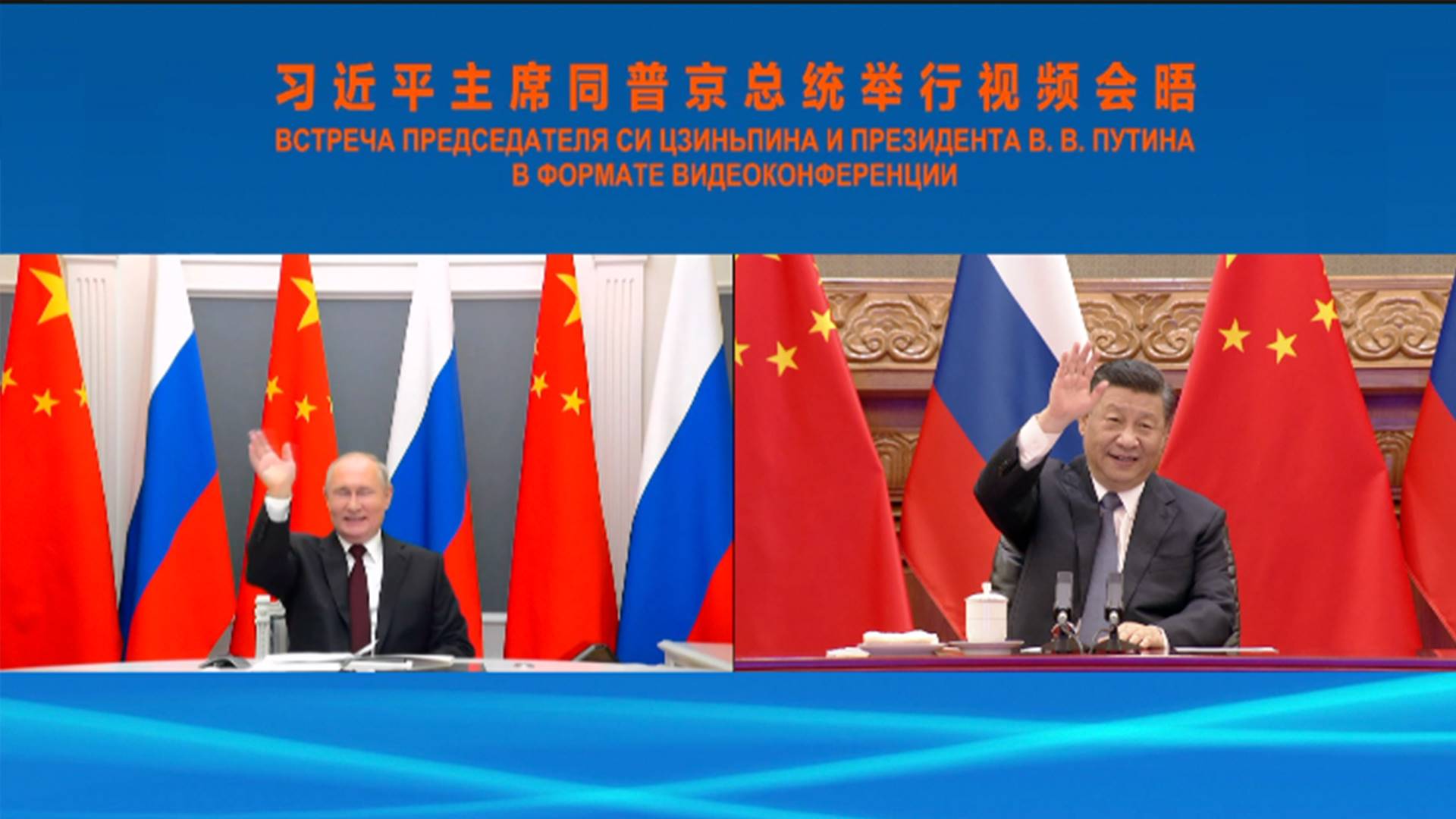BEIJING — Chinese President Xi Jinping and Russian President Vladimir Putin held their second dedicated video call of the year Wednesday, amid rising international concerns about tensions on the Russia-Ukraine border

Putin won support from Xi for his push to obtain binding security guarantees for Russia from the West, a Kremlin official said, according to Reuters.
Russia wants the United States and NATO to guarantee the military alliance will not expand further eastward or deploy weapons systems in Ukraine and other countries on Russia’s border.
Putin also called Xi his “dear friend” and said relations between the two countries had reached “an unprecedentedly high level,” according to a report of the call’s opening remarks from Russian state news agency TASS.
CHINA has bypassed and slapped EVERYBODY !
The two leaders’ video call lasted just over an hour, from 4:07 p.m. to 5:21 p.m. Beijing time, according to Chinese state media. Few other details on the call were available as of late Wednesday Beijing time.
Xi and Putin last met in late June, also via video link. Earlier in the year, the two leaders met via video as part of a ceremony for launching a nuclear power reactor project. Putin and Xi also spoke by phone in August following the Taliban’s seizure of power in Afghanistan as the U.S. withdrew troops.
Ahead of the virtual meeting, Kremlin spokesperson Dmitry Peskov said the two leaders would discuss tensions in Europe and described the two countries as “allies,” according to Reuters.
Biden didn’t accept Putin’s ‘red lines’ on Ukraine – here’s what that means
“We see very, very aggressive rhetoric on the NATO and U.S. side, and this requires discussion between us and the Chinese,” the spokesperson said, according to the Reuters report.
Members of NATO — a powerful military alliance — vowed in June to address threats from China in addition to Russia.
In a virtual meeting with U.S. President Joe Biden last week, Putin said Washington should not allow Ukraine to join NATO in return for assurances that Russian troops would not carry out an attack.
Biden said Washington would not accept such a demand.
An attack on one member of NATO is considered an attack on all member countries. Ukraine has wanted to join the alliance since 2002, but Russia objected on grounds that such a move would be a direct threat to its borders.
It is less clear what Beijing’s position is on Ukraine. Xi spoke over the phone with Ukrainian President Volodymyr Zelensky in July, according to China’s foreign ministry.
G-7 leaders on Sunday issued a statement condemning “Russia’s military build-up and aggressive rhetoric towards Ukraine.” The U.S., Canada, France, Germany, Italy, Japan, and the United Kingdom are part of the bloc of major economies.
China is not part of the G-7. The country shares a long border with Russia and much of their bilateral relationship has focused on trade, especially in energy. This year, China bought significant amounts of coal and other fuel from its northern neighbor to help ease a shortage of coal.
Xi said Wednesday that he looked forward to seeing Putin at the Olympics in Beijing, and to start a new chapter in China-Russia relations post-Covid, according to Chinese state media.
The Games are set to start in early February, and Biden has announced a diplomatic boycott, although athletes can still attend.
Napomena o autorskim pravima: Dozvoljeno preuzimanje sadržaja isključivo uz navođenje linka prema stranici našeg portala sa koje je sadržaj preuzet. Stavovi izraženi u ovom tekstu autorovi su i ne odražavaju nužno uredničku politiku The Balkantimes Press.
Copyright Notice: It is allowed to download the content only by providing a link to the page of our portal from which the content was downloaded. The views expressed in this text are those of the authors and do not necessarily reflect the editorial policies of The Balkantimes Press.
